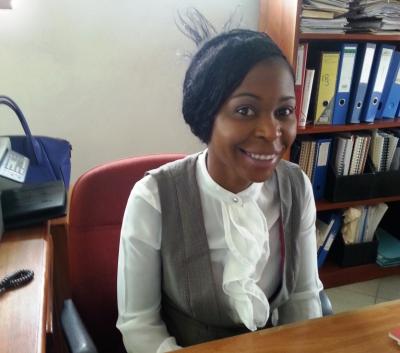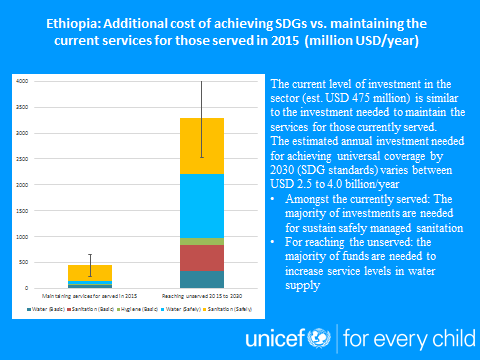Regular audits, tight monitoring, stakeholder participation and tactful engagement with politicians can lead to more integrity.
Published on: 20/06/2017
Mrs. Chola Mbilima works for the Zambia National Water Supply and Sanitation Council, the regulatory authority. At the three-day Water Integrity Forum in Addis Ababa, she presented how corruption is seriously hampering progress in the water sector in Zambia. Contractors collude in procurement, delay completion of works, do not comply with work regulations, inflate costs of materials and do not adhere to procedures.
Just like in high income countries, the only way to prevent and identify such practices is through regular audits, tight monitoring, stakeholder participation and, most importantly, regular and tactful engagement with politicians. Mrs. Mbilima stressed that government regulation and leadership are absolutely critical for mandating formal audits. Formal audits can be carried out by regulatory institutions to generate the evidence but anti-corruption commissions and committees are the ones with the power of prosecution. These institutions need to support each other.
Having proper auditing is a great step forward to ensure that the money available is being spent properly. However, it is not enough to increase the large amounts of finance needed for the sector. One of the limitations of formal financial audits is the lag in time in the publication of the audits (taking sometimes more than three years) and the financial audits don't really tell us if what is being done is what people really need and have asked for – or if it is sufficient. In Zambia, Uganda, Ethiopia and many countries in the region, the financing gap to reach the Sustainable Development Goals (SDGs) is huge.

Mr. Peter Magara who works for IRC Uganda, presented another approach towards accountability. Two years ago he and his team did a budget tracking exercise in two districts, Kabarole and Lira. The exercise of tracking financial flows was very relevant to identify the size of the funding gap and how it changes over time, the allocation between construction and maintenance and also to get an idea of value for money: what level of service is actually being delivered. Mr. Magara said that “the study clearly shows a lack of alignment in funding from different development partners towards the district WASH Investment Plan but more alarmingly, but not really a surprise, that Uganda will need to increase the funding five times to reach universal coverage for water.”
Similar conclusions were reached in the latest financial study for the WASH sector in Ethiopia. Mr. Michele Paba from UNICEF showed that to reach universal coverage for water and sanitation, current annual investments need to increase six fold.
While identifying corrupt practices through auditing is common practice in many countries, and this can ensure that the money available is used effectively, tracking budget flows and investments in the sector is another step in the right direction, but it is not leading to an increase in finance at national or district level. This might be because many of the advocacy and influencing non-governmental organisations (NGOs) and civil society organisations (CSOs) in the sector work predominantly with technocrats in the water sector and not with local and regional councils, where the political and financial decisions are being made. Or simply because it has become more difficult for citizen groups to have a formal seat and a voice in many of the decision making platforms. This was mentioned by government and civil society participants from Ethiopia, Uganda, Benin, Kenya and Mozambique throughout the Water Integrity Forum.

Integrity is key for the attainment of SDG 6. The investment gap is widened by a lack of integrity and misuse of resources. Increasing integrity does not necessarily mean an increase in funding for the sector except that money is not lost in corruption practices. Accountability through budget tracking is critical to understand where the money is being spent and the size of the financial gap, but without amplifying and elevating these conversations to the Ministry of Finance and local councils, not even the best financial reports will lead to improvements in the sector.
However, this is an area where NGOs and CSOs can complement and support the regulatory authorities. I believe strongly that in many of the countries with a substantial underspending on WASH, one of the most effective ways to increase the level of finance needed is by promoting the engagement of citizens to meet the SDG targets and holding their governments accountable. To dramatically increase the amount of (public) finance in the sector will require stronger voices both from civil society and from strong regulators that can use valuable financial information to champion more and better investments in the sector.
Acknowledgements: Thank you to the Water Integrity Network and co-organisers for putting together the Water Integrity Forum hosted in Ethiopia in May 2017 – they managed to bring together governments, NGOs and CSOs working mostly in East Africa to discuss difficult topics in the sector. The meeting report is available on the Water Integrity Network website.
At IRC we have strong opinions and we value honest and frank discussion, so you won't be surprised to hear that not all the opinions on this site represent our official policy.